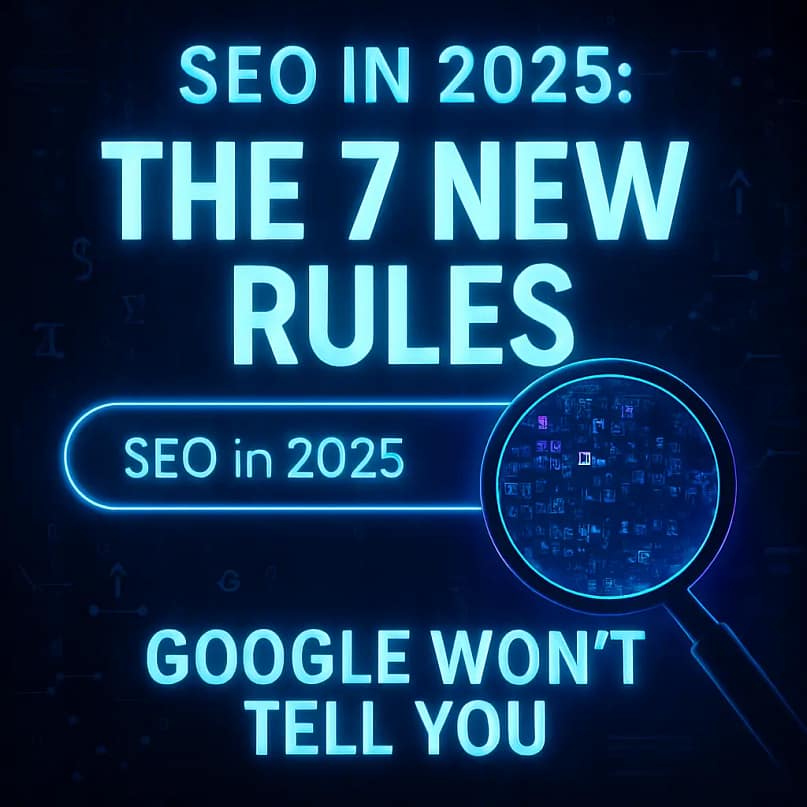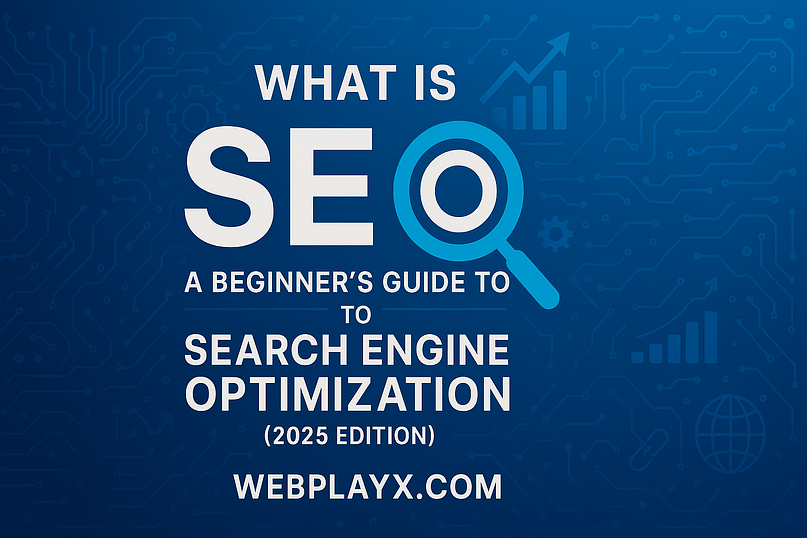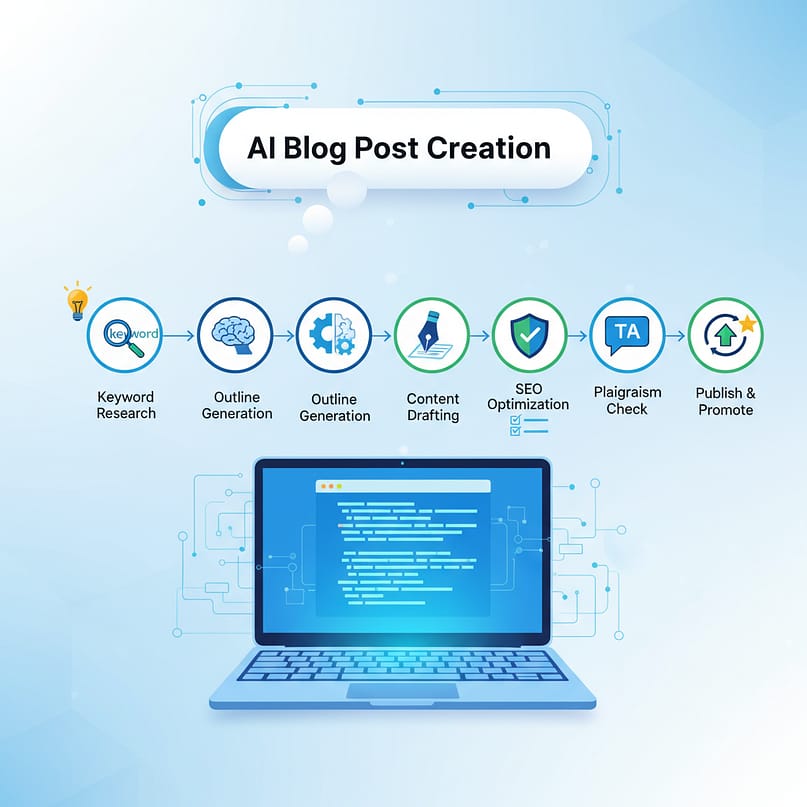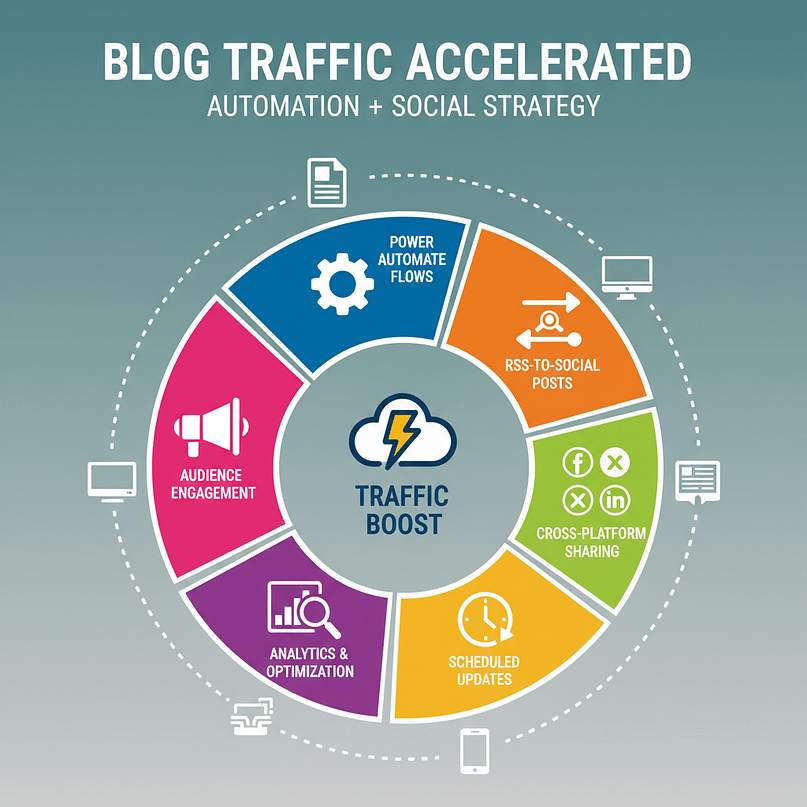Introduction: Why SEO in 2025 Is Different
If you’ve been following search engine optimization tips for years, you already know one thing: Google never stops evolving. Every Google algorithm update reshapes the way websites rise or fall in search rankings. What worked five years ago—like keyword stuffing, link exchanges, or over-optimizing anchor text—now does more harm than good.
In 2025, SEO has matured into something smarter, cleaner, and highly user-focused. Google’s systems now use AI-driven analysis to measure content quality, authority, and user experience rather than just keyword density.
So if you’re wondering how to rank on Google in 2025, here are the 7 new rules Google won’t tell you directly—but expects you to follow.
1. User Experience Is the New Keyword
In 2025, user experience (UX) is at the core of SEO. Keywords still matter, but they’re secondary to how well your page performs for real users.
Live Example:
Imagine you run a recipe blog. Two articles both rank for “chocolate cake recipe.”
- Site A loads in 1 second, has clear step-by-step instructions, and a clean layout.
- Site B loads in 7 seconds, is filled with pop-ups, and buries the recipe under ads.
Even if Site B has more backlinks or keywords, Google ranks Site A higher because it provides better user experience.
Actionable Tips:
- Keep load times under 3 seconds (use tools like PageSpeed Insights).
- Optimize your site for mobile-first indexing.
- Avoid intrusive ads or pop-ups.
Keyword used naturally: search engine optimization tips
2. Google Algorithm Updates Are Smaller but More Frequent
In earlier years, Google released major updates like Panda, Penguin, and Hummingbird that shook the SEO world overnight. But in 2025, Google algorithm updates are more frequent and AI-driven, meaning changes happen in smaller increments almost every week.
Live Example:
- In 2023, Google launched the “Helpful Content Update.”
- By 2025, instead of one huge update, Google pushes micro-adjustments that continuously evaluate whether your content is fresh and helpful.
This means you can no longer “wait and see” after an update—you need to continuously optimize content.
Actionable Tips:
- Monitor search console weekly.
- Refresh old content every 3–6 months.
- Track SERP changes to spot early signals.
Keyword used naturally: Google algorithm update
3. Helpful Content System Decides Winners
Google has openly said that “helpful content” ranks higher. In 2025, this system is stricter. If your website publishes content solely to game search engines, you’re likely to drop.
Live Example:
If someone searches “how to rank on Google,” here’s what Google looks for:
- Step-by-step strategies (not vague advice).
- Examples of ranking improvements (screenshots, case studies).
- Fresh updates (not recycled content from 2019).
An article with genuine strategies will outrank one that repeats generic tips.
Actionable Tips:
- Write people-first content, not search engine-first.
- Answer queries directly in the first 100 words.
- Add unique value: charts, screenshots, personal experiences.
Keyword used naturally: how to rank on Google
4. Zero-Click Searches Dominate
Voice assistants, AI search snippets, and featured snippets mean users often don’t click websites. But instead of seeing this as a threat, treat it as an opportunity for visibility.
Live Example:
Search: “SEO trends 2025”
- The top result may show a Google featured snippet listing bullet points directly.
- Even if users don’t click, your brand gains authority.
Actionable Tips:
- Add FAQ sections targeting long-tail queries.
- Use schema markup to qualify for snippets.
- Structure answers in 40–60 word blocks for voice search optimization.
Keyword used naturally: SEO trends 2025
5. AI + Human Balance Is the Winning Formula
One of the major SEO trends in 2025 is the balance between AI tools and human creativity. AI can help generate outlines, meta descriptions, or keyword ideas—but over-reliance on AI produces generic, low-value articles.
Live Example:
- Site A publishes 200 AI-only articles in a month → They all look the same, get flagged, and lose rankings.
- Site B uses AI for research but adds human insights, case studies, and opinions → Their content ranks and earns backlinks.
Actionable Tips:
- Use AI as an assistant, not a writer.
- Add human stories, case studies, and personality.
- Mix data-driven research with conversational writing.
Keyword used naturally: SEO trends 2025
6. E-E-A-T Is Non-Negotiable
Google’s E-E-A-T framework—Experience, Expertise, Authoritativeness, Trustworthiness—has become a deal-breaker in 2025. Without it, your content risks invisibility.
Live Example:
Two finance blogs target the keyword “best tax-saving investments.”
- Blog A is written by an anonymous writer with no credentials.
- Blog B is written by a chartered accountant with verified author profile.
Google pushes Blog B higher because of expertise and author credibility.
Actionable Tips:
- Always add author bios with real qualifications.
- Link to authoritative sources (research papers, government sites).
- Build trust with HTTPS, clear policies, and transparency.
Keyword used naturally: Google ranking rules
7. Google Ranking Rules Are Hidden but Predictable
Google never reveals its full ranking rules, but careful observation shows what works: user-first content, authority, speed, and intent-matching.
Live Example:
Think about the site Healthline. It consistently ranks for medical queries because:
- Articles are reviewed by medical professionals.
- Content is updated frequently.
- They match search intent perfectly (short answers + in-depth content).
Actionable Tips:
- Study high-ranking competitors in your niche.
- Reverse engineer their structure, length, and style.
- Track your click-through rate (CTR) to optimize titles and meta descriptions.
Conclusion: The Future of SEO in 2025
SEO in 2025 is no longer about “hacks.” It’s about long-term consistency, authority building, and understanding Google’s hidden rules.
To summarize the 7 rules Google won’t tell you directly:
- User experience is more important than keywords.
- Algorithm updates are small but constant.
- Helpful content outranks filler.
- Zero-click searches build authority.
- AI + human collaboration wins.
- E-E-A-T is mandatory.
- Ranking rules are hidden, but visible if you observe patterns.
If you focus on authenticity, helpfulness, and authority, you’ll stay ahead of competitors—no matter what Google algorithm update comes next.
FAQ (How to rank on google)
What are the top SEO trends in 2025?
SEO trends in 2025 include AI + human collaboration, zero-click optimization, stronger E-E-A-T, and constant algorithm adjustments.
How can I rank on Google faster in 2025?
To rank faster, publish helpful content, focus on user experience, use schema markup, and refresh old posts regularly.
Are Google ranking rules public?
No, Google does not reveal all its ranking rules. However, experience shows that content quality, authority, and user satisfaction drive rankings.
Do keywords still matter in 2025?
Yes, keywords still matter, but they must be used naturally within high-quality, helpful content rather than stuffed into articles.




Pingback: AI in Excel: How Copilot is Changing the Way We Work | WebPlayX.Com - Learn Excel, Automation, and Tech Made Easy
Pingback: How to Automate WhatsApp Messages with Power Automate (2025 Guide)
Pingback: How to Write SEO-Friendly Blog Posts Using AI | WebPlayX.Com - Learn Excel, Automation, and Tech Made Easy